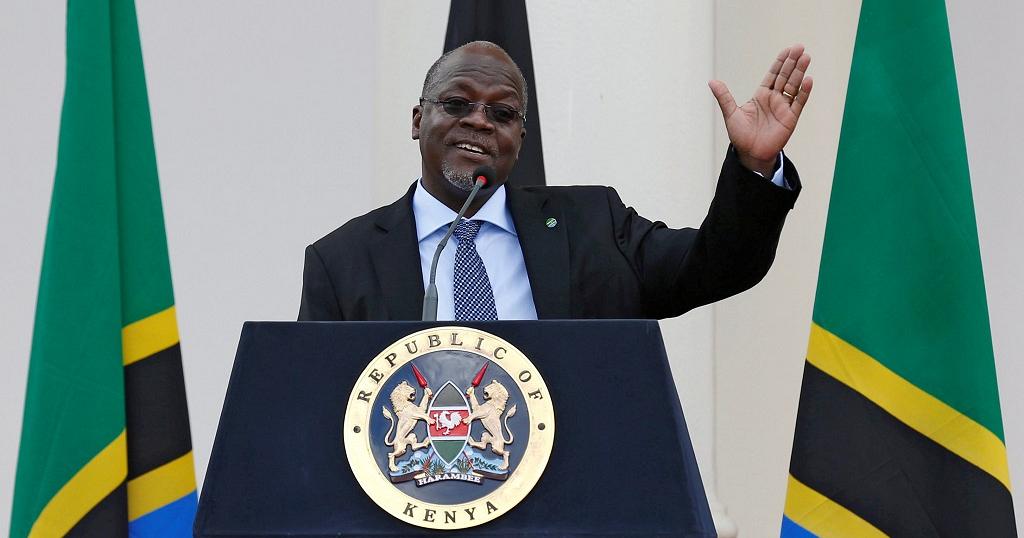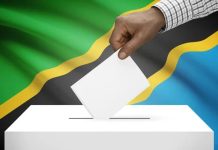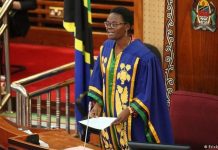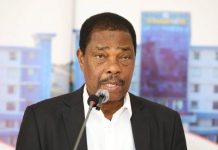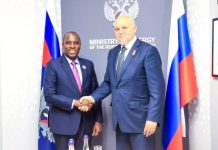By Faridah N Kulumba
Africa-Press-Tanzania The United Republic of Tanzania was established in April 1964, following the amalgamation of the former independent state of Tanganyika and Zanzibar. The United Republic came about after more than 70 years of colonization. The mainland, Tanganyika, was first colonized by the Germans and later handed over to the British in the 1920s under the trusteeship system through a mandate from the League of Nations. Tanganyika attained independence, however, was achieved without the pattern of violence that dominated the struggle for independence in other African countries such as Kenya, Zimbabwe, and Mozambique.
At independence in 1961, Tanzania crafted a constitution. Provisions were made for checks and balances among the three arms of government – the executive, the legislature, and the Judiciary.
Deviation
Immediately after independence, the regime in Tanzania acted contrary to the constitution. The constitution has been amended several times to recast state power in ways that increase the incumbent regime’s ability to cling to state power.
STATE OF POLITICAL PARTIES
Single-party
Seventeen years after the dawn of liberal democracy Tanzania is still suffering from the hangover of a single-party rule. There are many indicators. Tanzania is still largely a party-state within a multiparty political system. Politics is still dominated by the one-party generation, most of them in their late sixties and above. Political leadership in both the ruling and opposition political parties is still in the grip of the old guards with the dot-com generation waiting in the periphery.
Obstacles
The transition to multiparty democracy in Tanzania continues to be frustrated by several factors including institutional weaknesses in practically all political parties as manifested by the lack of party philosophy or ideology, the functioning of party structures and processes, lack of participatory internal democracy due to a deficit of communication between party leaders, followers and the population, Lack of resources and the dominance of personality cult together with the infiltration in politics by wealth individuals [wafadhili wa vyama] funding political parties with the sole aim to maintain the status quo are other factors holding political development in Tanzania.
Lack of grassroots
The other often ignored factor is the lack of grassroots demands for political reforms on the parties considering that all political parties started from above and mostly in urban centers and have done very little to reach the grassroots especially in the rural areas where 87 percent of the population live. Furthermore, the electoral system [winner takes all], which not only leaves out smaller parties but also disproportionately rewards the ruling party with seats in Parliament and hence more funding; and the refusal to allow private candidates is equally levying a cruel tax on democracy.
THE RULING PARTY
Since the advent of multipartyism, the ruling Chama cha Mapinduzi [CCM] party has not only declined to de-link the civil service from the party but has continued to enjoy, with impunity, exceptional support from state machinery. Chama cha Mapinduzi continues to deploy the services of regional and district administration, police, and state security [Usalama wa Taifa] to organize, manage and utilize state funds for what are purely party events, including elections. Most significantly, CCM uses these state structures to relay party messages and directives including the hosting of top party leadership as most of them double as party and state leaders – the case of Regional and District Commissioners and Cabinet Ministers. What this means is that the cost of performing many of the expensive party tasks is borne by the state on behalf of the party.
OPPOSITION TROUBLES
Identity
One common feature of the leadership in the opposition political camp is that it is not markedly different from the ruling party. The opposition is also being led by the same social stratum born and nurtured by the mono-political system. This is why it has borrowed the same single-party categories, instruments, structures, and terminologies in the struggle against the ruling party hegemony. There is very little that deviates the opposition political parties from the dominant party so much so that average, ordinary people do not see the difference. This also explains why almost all the opposition political parties have been riddled with internal leadership struggles and defections back to the ruling party, something that has contributed to eroding voter confidence in the emerging parties. In terms of popularity of the opposition political parties the graph has not remained constant.
Opposition challenges
The thrust of CHADEMA on graft and corruption in the corridors of power has proved to be an effective stick from which to beat the ruling party and around which it has been able to mobilize a huge following. This is the only political party that is expected to offer a stiff challenge to the ruling party in the future. Other opposition political parties exist only in name, some without even offices, leadership, There are various reasons to explain the impotence of the opposition political parties in Tanzania. These include the selective affinity of the State towards the ruling party – hence the unfair competition and unleveled playground. The opposition still faces many hurdles in their effort to penetrate the politics in the country, major among them being their leadership qualities.
THE STATE OF CIVIL SOCIETY
The role of civil society in any political setting cannot be underestimated. These are training grounds for democratic citizenship and the development of the political skills of their members. They recruit new political leaders, stimulate political participation and educate the broader public on a wide variety of public interest issues. In their watchdog role, they serve, along with the press, as checks on the relentless tendency of the state to centralize its power and to evade civic accountability and control.
The civil society in Tanzania is further weakened by the law, which prohibits them from politicking because that is the sole work of political parties. Interestingly even leaders of the political parties who stand to gain a lot from civil societies have not gained the courage to challenge the bad law. Tanzania has a long history of excluding trade unions, cooperative societies, students’ groups, women organizations, and professionals from politics – since their absence makes it much easier to cut deals across party line. A typical example is how members of Parliament are able to increase their salaries and other allowances almost at will.
INFLUENCE OF FOREIGN POWERS
With an almost 100 percent dependency on external funding for her development budget, Tanzania is losing its independence. Planned aid funding for Tanzania in 2019 was estimated to be $553.08 million and covers categories of democracy, human rights, governance, peace and security, environment, and economic development.
The external factor is not only directed at the state but also to the emerging civil society many of which are out there to meet the interests of funding partners. External social engineering means that the country’s future will not be determined by internal dynamics but rather the external factors. This has led to what is referred to as management by crisis. Apparently, Tanzania switched to liberal politics with pressure from external powers. If this is the case it goes without saying that the country is prone to the political crisis [due resistance], and therefore requires carefully externally directed political intervention in order to consolidate and expand the level of freedom and stability.
*NGOs-* Tanzania’s Non-Governmental Organizations heavily depend on funding from external sources. According to the new research commissioned jointly by the Foundation for Civil Society and the Tanzania Philanthropy Forum, fifty-seven percent of respondent organizations to the study said that their revenues came purely from external sources.
Opposition crackdown
During the latest crackdown police detained nine members of Chama cha Demokrasia na Maendeleo (Chadema ) party and raided the party’s offices in the northern lakeside town of Musoma to block a planned symposium by the youth wing on constitutional change. Opposition members strongly condemned this blatant violation of constitutional and rule of law, which they say is sowing the seeds of hatred, discrimination, and discord within communities.
For almost the last 6 years there has been a rise in the harassment of opposition political figures and restrictions on their activities. Other opposition parliamentarians also have been facing frequent duress from police. In late September 2017, police arrested a Chadema MP after a party event, and another complained that police were prohibiting his meetings with constituents, as had another in August. Such events have been preceded by many similar ones in recent years, notably during electoral periods.
DEMAND FOR CONSTITUTIONAL REFORM AND CRITICISM
President Samia’s leadership is under scrutiny over her handling of demands led by opposition leaders for a new constitutional reform. Last year 59-year-old Freeman Mbowe the main opposition leader of Chadema was arrested by President Samia Suluhu Hassan’s government, as he prepared to address a constitutional forum arranged by his party, and was later charged with terrorism acts. After Bowe’s detention, nine members of his party were also detained by the same government, which the opposition says shows that President Hassan is continuing the oppressive rule of the previous regimes.


